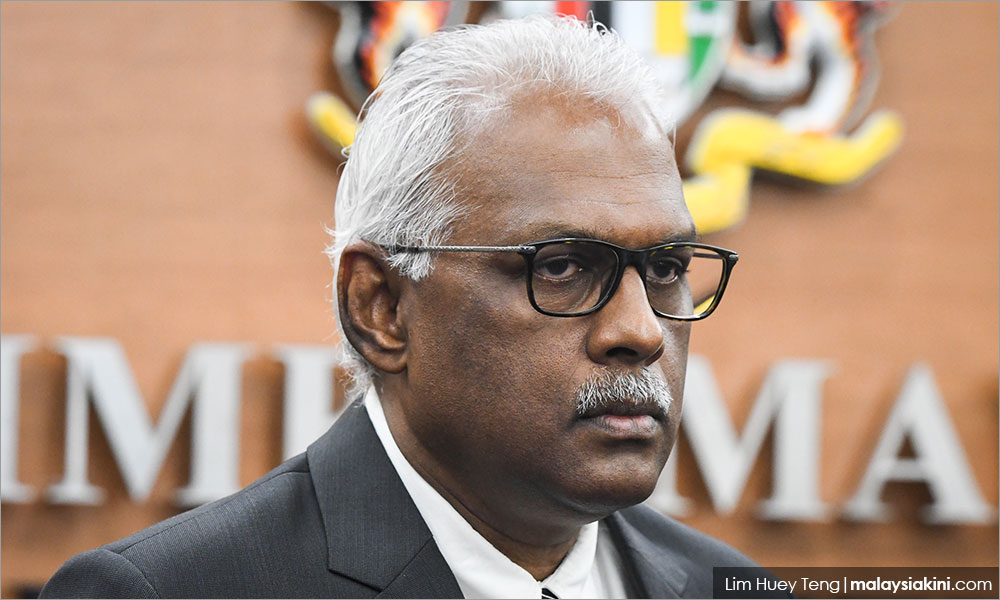
The announcement by Prime Minister Dr Mahathir Mohamad that Malaysia will withdraw from the Rome Statute and the International Criminal Court (ICC) reflects negatively on himself and his cabinet ministers, said DAP Klang MP Charles Santiago.
Met after his speech at the 2019 Refugee Festival in George Town, Santiago said cabinet ministers were elected by the people, and they should be making important decisions on behalf of the people.
The Rome Statute ratification, he added, enables the government to act against perpetrators of murder and genocide, especially when Malaysia is part of Asean.
"That is what it means by playing an important role in Asean. But why the fear?
"It shows the government is not prepared, and that is why they are buckling under pressure.
"It shows weakness, it shows they have not outgrown their weaknesses," said Santiago, who is also the Asean Intergovernmental Commission of Human Rights chairperson.
"Upon pressure, they quickly relent. It sends a wrong message to the public.
"Those who voted for you are disappointed, thinking you will make the right decisions, it reflects negatively on him (Mahathir) and the rest of the Pakatan Harapan cabinet," he stressed.
Santiago said Mahathir's decision to cave in to the pressure from certain quarters makes him look "very weak".
This U-turn, he added, is a loss of face for the Foreign Affairs Minister Saifuddin Abdullah, who signed the statute on March 4.
"If you behave in a weak fashion, how will people support you?" Santiago asked.
The issue became controversial when Johor ruler Sultan Ibrahim Sultan Iskandar said ratifying the treaty would violate the Federal Constitution as it would affect the royals, Malay rights and the sanctity of Islam in Malaysia.
Charles recalled that during his first tenure as PM in the 1980s, Mahathir had been firm with the royalties, "bulldozing" a constitutional amendment which affected their immunity from prosecution.
However, the premier's attitude now has affected the country's democratic and human rights reforms in the New Malaysia, he said.
"Just because some people throw a spanner in the works, you relent. This sets a dangerous precedence, where certain quarters would take advantage of," Santiago said.
He said the government may say that it withdraws the statute because of confusion and not because they fear anyone, but it had made the same mistake with the International Conventiom on the Elimination of All Forms of Racia Discrimination (Icerd).
"They did not prepare the public, especially important stakeholders. When countries like Saudi Arabia and Brunei had signed on to the Icerd, I don't see why we have a problem with the Muslim community and groups (here)," he added.
The ICC, adopted by more than 100 countries in 1998, tries four core international crimes - genocide, crimes against humanity, war crimes and crime of aggression.
The move led to the establishment of the ICC which came into force in 2002 and aims to end impunity against the perpetrators of the most serious crimes. - Mkini



No comments:
Post a Comment
Note: Only a member of this blog may post a comment.